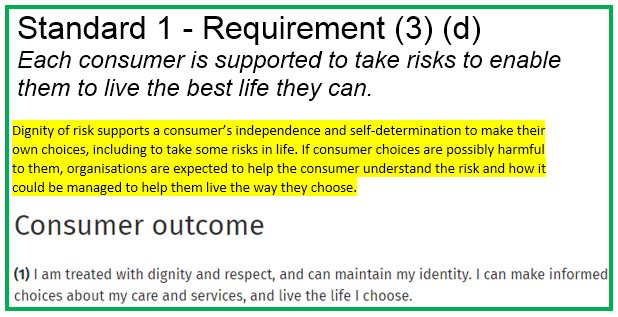What would you do in this situation? One of your residents, an 85-year-old single woman who you believe is of sound mind, discovers ‘new love’ online with a 21-year-old African man (in Africa).
She decides she is going to fly over to Africa and you know that she has access to over $100,000 in her bank account.
What is your responsibility? Do you ‘let her go’?
I attended the Mornington Peninsula Regional Meet of Village Managers last week (40+ Village Managers were there), and one ‘Street Talk’ item that was raised was understanding the concept of Dignity of Risk and responsibilities.
This 85-year-old woman was a real life example given by one Village Manager – and the new laws and regulations mean that the village management cannot interfere. This is the principle of ‘dignity of risk’ – meaning, no matter what our age, if we want to engage in risky endeavours then it is our right to do so unimpeded.
So the 85-year-old did fly to Africa – and she has never been seen or heard of again. (We did not learn about what happened to the money!)
What is the law
What is the responsibility of the Village Manager and Operator?

A whole range of different laws and regulations have emerged in the last couple of years, under state regulations, the Human Rights Commission and even in the aged care space with this week’s new Aged Care Quality Standards. This picture below summarises these new ‘rules’ (including home care).

If you are in a challenging position, uncertain on how to guide a resident, our advice would be to organise legal advice, because this is going to be a ‘grey’ area!
P.S. Africa happens a lot – watch this unrelated telecast.
Chris



